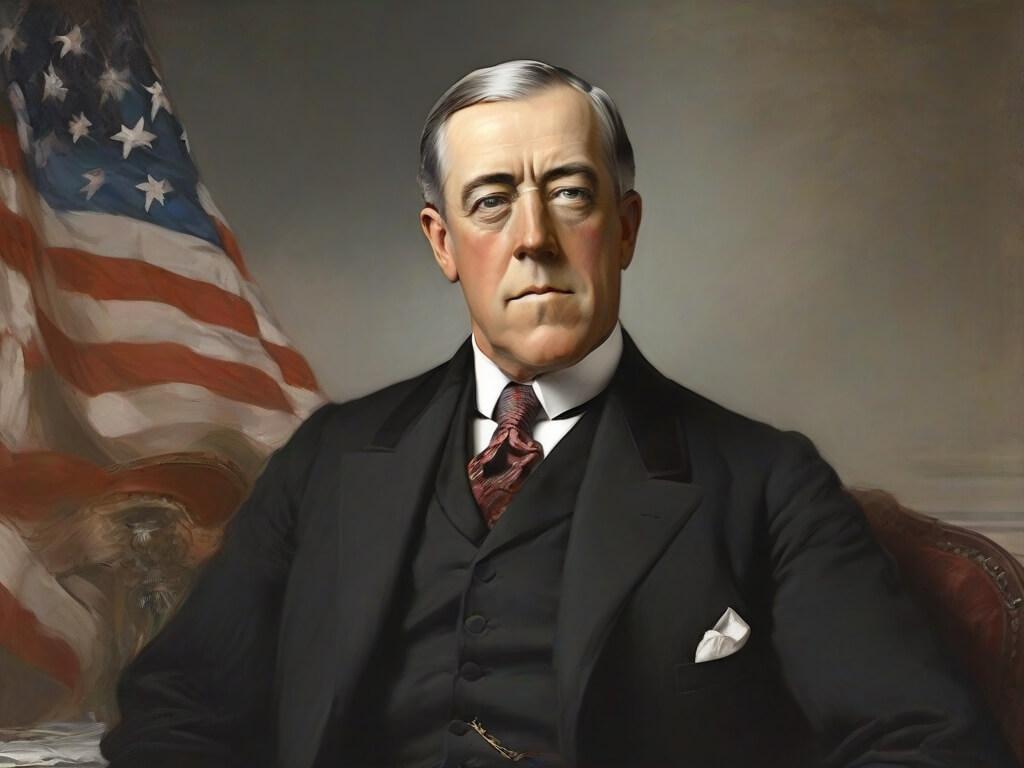Delve into the historical significance of Woodrow Wilson’s Fourteen Points in our latest post. Uncover the diplomatic principles that shaped post-World War I negotiations, understanding their impact on international relations.

Fourteen Points; the aims of the United States in World War I as defined by President Wilson in an address to Congress on Jan. 8, 1918. Earlier, Wilson had desired to make a definitive avowal of war aims and had been restrained by warnings that the time was not ripe. He concluded that he could delay no longer once the Bolsheviks, during November and December 1917, seized control of the Russian government, appealed for an armistice based on the principles of no annexations and no indemnities, and exposed selfish Allied objectives by publishing Russia’s secret treaties with the western Allies.
Wilson drafted the Fourteen Points Address in conference with his adviser, Col. Edward M. House, on Jan. 4-7, 1918. After reviewing the recent negotiations between Germany and Russia looking toward peace, Wilson enunciated America’s own war objectives, briefly as follows:
- I. Open covenants of peace, openly arrived at.
- II. Freedom of the seas, except when abrogated by international action.
- III. Removal of artificial trade barriers among nations.
- IV. Sweeping reductions in national armaments.
- V. An absolutely impartial adjustment of colonial claims.
- VI. The evacuation of and self-determination for Russia.
- VII. The evacuation and restoration of Belgium.
- VIII. The return of Alsace-Lorraine to France.
- IX. Readjustment of Italy’s boundaries along the lines of nationality.
- X. Autonomy for the subject peoples of Austria-Hungary.
- XI. International guarantees for the integrity of Rumania, Serbia, and Montenegro.
- XII. Autonomy for the subject peoples of the Ottoman Empire and free passage for all nation; through the Dardanelles.
- XIII. Establishment of an independent Poland with access to the sea.
- XIV. A general association of nations “formed under specific covenants for the purpose of affording mutual guarantees of political independence and territorial integrity to great and small states alike.”
The Fourteen Points Address at once became the standard behind which labor and liberal groups throughout the western world rallied. Distributed behind German lines, the address helped to undermine the German will to fight. At Wilson’s insistence, the armistice agreement of Nov. 11, 1918, specifically recognized the Fourteen Points and later Wilsonian elaborations as the basis for peacemaking, subject to reservations on freedom of the seas, reparations, and independence for Czechoslovakia.
Wilson fought hard for the Fourteen Points during the Paris Peace Conference of 1919, which drew up the Versailles Treaty ending the war with Germany. He was unable to win vindication of some important points, particularly those concerning colonial claims and disarmament, but the treaty substantially honored many other points. And Wilson was certain that the new League of Nations—the fruit of Point XIV— would soon redeem broken pledges to Germany.
The Fourteen Points Address was not only Wilson’s greatest speech but also one of the most significant manifestos of the 20th century. It has remained the basic charter of men who share its hope of a new world organized |or mutual advancement and lasting peace.